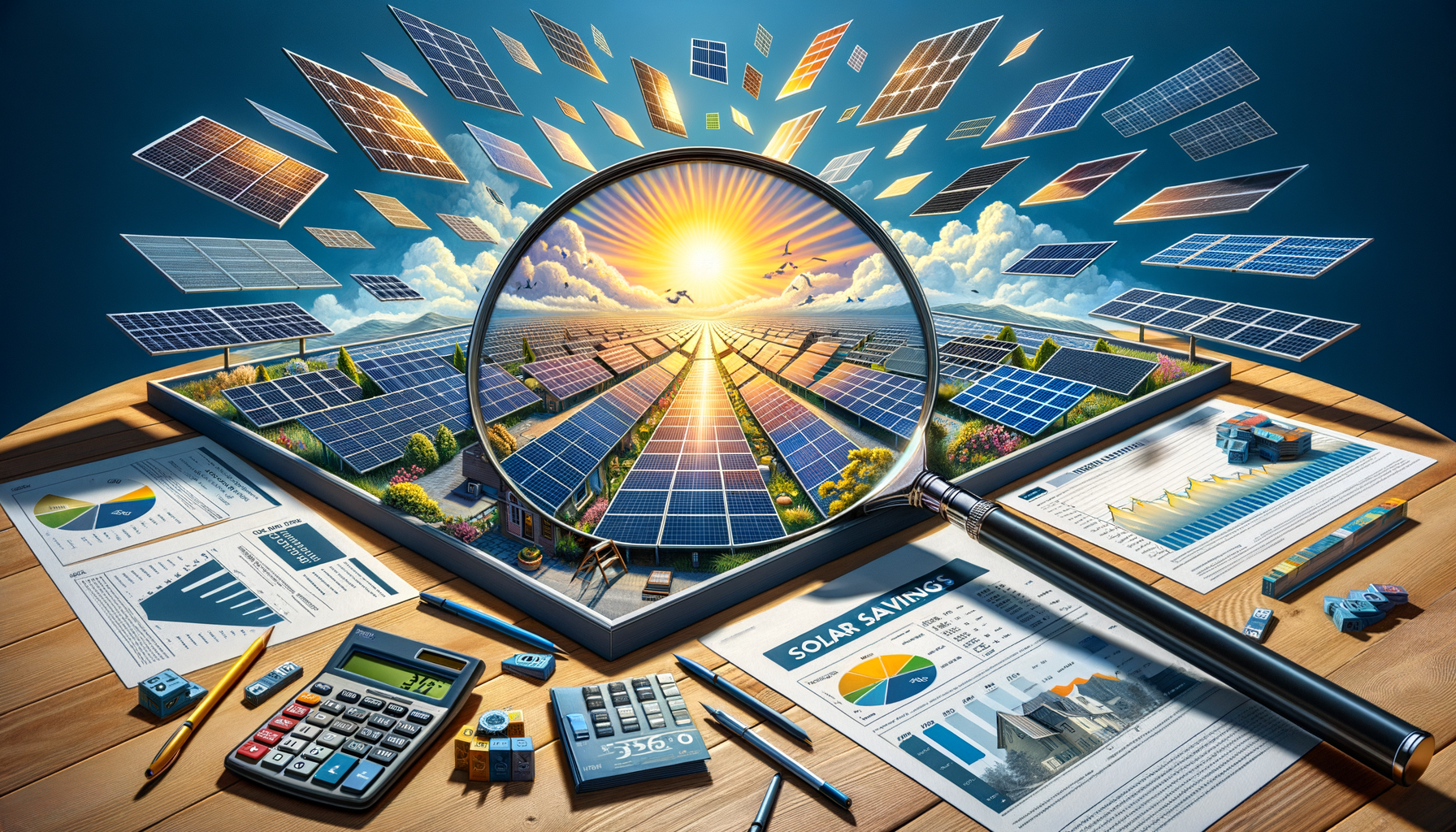Introduction to Solar Panel Purchases
In an era where sustainability is at the forefront of global concerns, solar panels have emerged as a significant solution for reducing carbon footprints and harnessing renewable energy. Whether you’re a homeowner looking to cut energy costs or a business aiming to enhance its green credentials, purchasing solar panels can be a transformative decision. However, the process involves more than just picking a brand or model; it requires a comprehensive understanding of various factors that can influence both the efficiency and cost-effectiveness of your solar panel investment.
Types of Solar Panels
When considering solar panels, it’s essential to understand the different types available on the market. The three main types of solar panels are monocrystalline, polycrystalline, and thin-film. Each type has its unique characteristics that cater to different needs.
- Monocrystalline Solar Panels: Known for their efficiency and longevity, these panels are made from a single crystal structure. They tend to perform better in warm weather and have a sleek appearance, making them a popular choice for residential installations.
- Polycrystalline Solar Panels: These are made from multiple silicon crystals and are generally less expensive than monocrystalline panels. While they are slightly less efficient, they offer a cost-effective solution for those with ample roof space.
- Thin-Film Solar Panels: Lightweight and flexible, thin-film panels are ideal for unconventional installations. They are less efficient compared to crystalline panels but can be a good fit for certain commercial applications.
Choosing the right type of solar panel depends on various factors, including your budget, roof space, and aesthetic preferences. Consulting with a solar energy expert can help you determine which type best suits your needs.
Installation Requirements and Costs
Understanding the installation requirements and associated costs is crucial when buying solar panels. Installation involves several steps, including site evaluation, system design, permitting, and the actual installation process. Each step can influence the overall cost and efficiency of your solar energy system.
The cost of installation can vary significantly based on factors such as the size of the system, the type of panels chosen, and the complexity of the installation. On average, solar panel installation costs can range from a few thousand to tens of thousands of dollars. It’s important to obtain multiple quotes from reputable installers to ensure you’re getting a fair price.
Additionally, consider the potential savings on energy bills and available incentives, such as tax credits and rebates, which can significantly offset the initial investment. A professional installer can provide a detailed breakdown of costs and potential savings, helping you make an informed decision.
Evaluating Solar Panel Efficiency and Performance
Efficiency and performance are critical factors when selecting solar panels. Efficiency refers to the ability of the solar panel to convert sunlight into usable electricity. Higher efficiency panels can generate more power in a smaller space, which is beneficial for those with limited roof space.
Performance can also be influenced by factors such as temperature coefficient, which measures how well the panel performs in high temperatures, and the degradation rate, which indicates how much power output decreases over time. Panels with lower degradation rates maintain their efficiency longer, providing better value over the lifespan of the system.
Researching and comparing the efficiency and performance metrics of different panels can help you select a system that meets your energy needs and offers a good return on investment. Online reviews and professional assessments can provide valuable insights into the reliability and performance of various solar panel models.
Consulting with Professionals for Tailored Recommendations
While researching solar panels, consulting with professionals can provide tailored recommendations that align with your specific energy needs and goals. Solar energy consultants can offer insights into the latest technologies, financing options, and potential savings, ensuring you make a well-informed decision.
Professionals can also assess your property to determine the optimal placement and size of the solar panel system, maximizing efficiency and performance. They can guide you through the permitting process and help you navigate any potential challenges that may arise during installation.
Ultimately, working with experienced professionals can enhance the overall experience of purchasing and installing solar panels, providing peace of mind and ensuring you achieve the desired outcomes from your solar energy investment.
Conclusion: Making Informed Solar Panel Purchases
Investing in solar panels is a significant decision that requires careful consideration of various factors, including panel types, installation requirements, efficiency, and professional guidance. By understanding these aspects and seeking expert advice, you can make informed choices that align with your energy needs and financial goals.
As solar technology continues to evolve, staying informed about the latest developments and options can further enhance the benefits of your solar panel investment. Embracing solar energy not only contributes to environmental sustainability but also offers long-term financial savings, making it a worthwhile consideration for both homeowners and businesses.



Leave a Reply